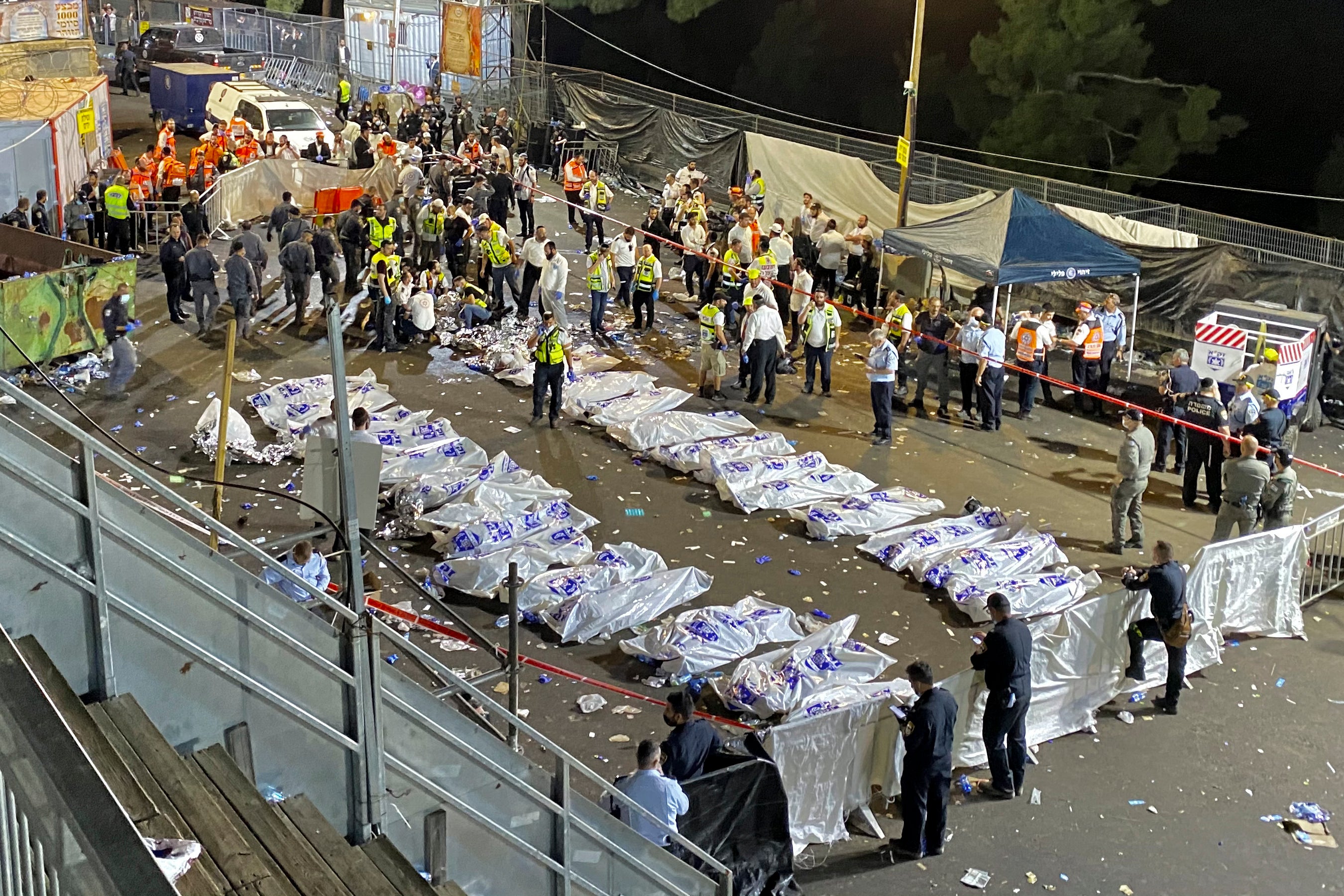Israeli probe into deadly holy site stampede opens hearings
An Israeli government commission investigating a deadly accident at a holy site in April has held its first day of hearings, almost four months after the stampede at Mount Meron left 45 people dead

Your support helps us to tell the story
From reproductive rights to climate change to Big Tech, The Independent is on the ground when the story is developing. Whether it's investigating the financials of Elon Musk's pro-Trump PAC or producing our latest documentary, 'The A Word', which shines a light on the American women fighting for reproductive rights, we know how important it is to parse out the facts from the messaging.
At such a critical moment in US history, we need reporters on the ground. Your donation allows us to keep sending journalists to speak to both sides of the story.
The Independent is trusted by Americans across the entire political spectrum. And unlike many other quality news outlets, we choose not to lock Americans out of our reporting and analysis with paywalls. We believe quality journalism should be available to everyone, paid for by those who can afford it.
Your support makes all the difference.An Israeli government commission investigating a deadly accident at a Jewish pilgrimage site in April held its first day of hearings Sunday, almost four months after the stampede at Mount Meron left 45 people dead.
The April 29 incident at the Jewish festival in northern Israel was the deadliest civilian disaster in the country's history. Around 100,000 worshipers, mostly ultra-Orthodox Jews attended festivities despite coronavirus regulations limiting outdoor assemblies to 500 people, and in spite of longstanding warnings about the safety of the site.
Hundreds of people bottlenecked in a narrow passageway descending the mountain, and slippery slope caused people to stumble and fall. The resulting human avalanche killed 45 people and injured at least 150.
In June, the Israeli government approved the formation of an independent state commission of inquiry to investigate safety shortcomings at the Lag Baomer celebrations at Mount Meron.
A panel headed by former Supreme Court justice Miriam Naor began proceedings with testimony from Northern District police chief Shimon Lavi, the officer who was in charge of managing the event.
Lavi said the Mount Meron festivities are the Israel Police's most significant annual event, requiring extensive resources, planning and preparation. He said that out of safety concerns “there has been no limitation on attendance at Meron, that’s how it has been done for the last 30 years." Any attempt to limit entry and put up barricades could result in “bottlenecks and much greater disasters,” he said.
The site in northern Israel is believed to be the burial place of celebrated second-century sage Rabbi Shimon Bar Yochai. The tomb complex and adjoining structures are managed by the Religious Services Ministry’s department for holy places. Experts had long warned that the Mount Meron complex was inadequately equipped to handle the enormous crowds that flock there during the springtime holiday, and that existing infrastructure was a safety risk.
But April's gathering went forward this year nonetheless as powerful ultra-Orthodox politicians reportedly pressured then-Prime Minister Benjamin Netanyahu and other government officials to lift attendance restrictions.
Lavi said there had been “neglect for many years” and “a lack of understanding that the event grew over time and that the infrastructure was not adequate, rather a kind of band-aid.”